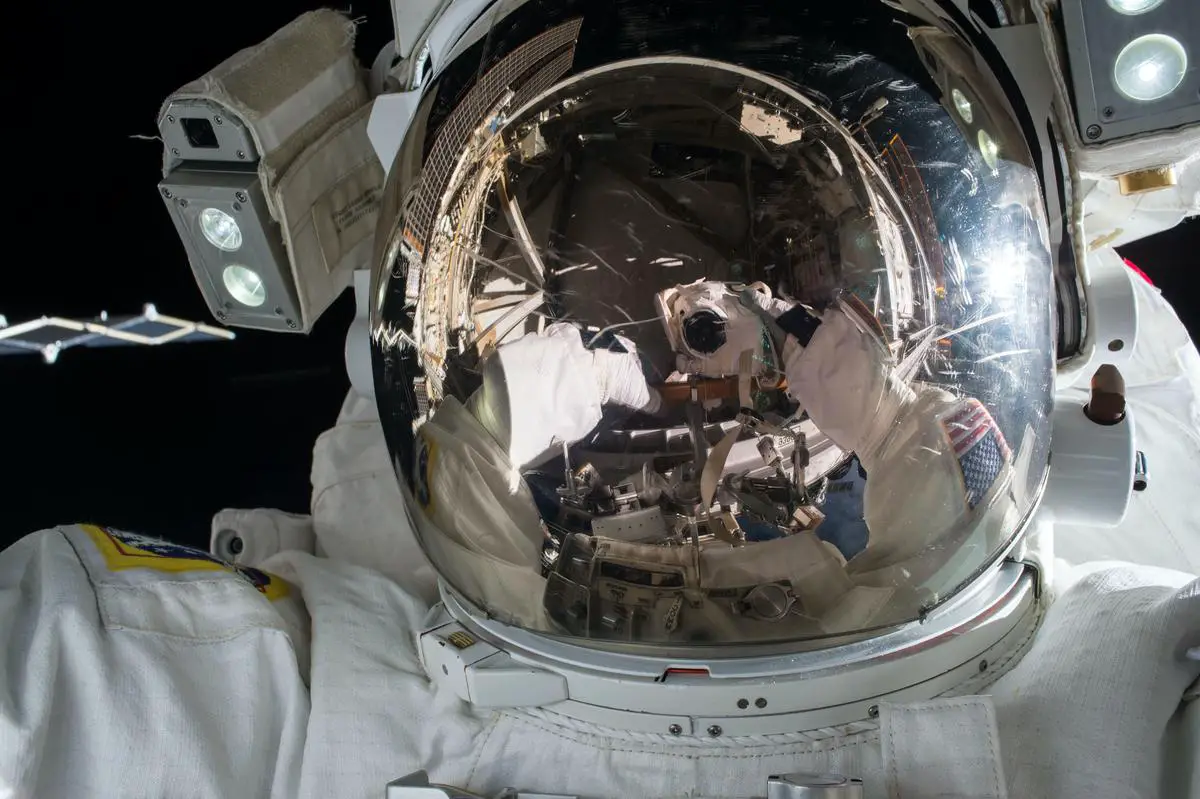In a defining era of human history, our species ventured beyond the confines of Earth, marking the beginning of an epic journey with the Apollo missions. Apollo Missions Change Cultural Influence forever! These grand expeditions opened a gateway to the moon, etching a significant chapter in the annals of human evolution and marking milestones that resonate to this day.
The impactful and transformative Apollo missions expanded our understanding, not only of our cosmic neighbourhood but also of ourselves. Through this exploration, we not only left our footprints on the moon, but the moon, in turn, impressively left its imprint on our society and culture.
Contents
Historical Context of the Apollo Missions
Historical Context of the Apollo Missions
Regarded as one of the most significant achievements of the 20th century, the Apollo missions were a series of space missions conducted by NASA.
The program aimed to land humans on the moon and safely return them to Earth, pushing the boundaries of what was deemed possible. Much of its success was due to competition during the Cold War and the resultant race between the United States and the Soviet Union for space dominance.
The Lunar Landing and Notable Missions
Apollo 11, the fifth manned mission, marks the first time a human set foot on another celestial body. On July 20, 1969, Neil Armstrong and Buzz Aldrin landed the lunar module, Eagle, on the moon’s surface while Michael Collins orbited in the command module, Columbia.
The phrase “That’s one small step for man, one giant leap for mankind,” became synonymous with human tenacity and ambition.
This achievement was not without its challenges and failures. Apollo 1 ended tragically when a fire in the command module during a pre-flight test led to the deaths of the three astronauts.
Apollo 13, famously referred to as the “successful failure,” was unable to complete its moon landing but still made it back to Earth safely despite a critical failure of the spacecraft’s service module.
Cultural Impacts of the Apollo Missions
The cultural impact of the Apollo missions was far-reaching, surpassing the confines of science and technology. They inspired a global shift in perspectives, encouraging people to think beyond their immediate environments towards the cosmos.
These missions acted as a bridge between cultures, uniting audiences worldwide in shared anticipation and excitement. They built an international consciousness about the value and potential of space exploration.
Celebration of the moon landing resonates across popular culture. The image of the first footstep on the moon became iconic, embodying humanity’s ability to reach out towards the unknown. Movies became space-centric, and countless documentaries were made to capture the events leading up to, during, and after the Apollo missions. Songs like David Bowie’s “Space Oddity” captured the zeitgeist, and more recently, there has been a resurgence in mainstream interest through films like “Apollo 11” and “First Man.”
More profoundly, the Apollo missions had a role in shaping our environmental consciousness. The infamous “Earthrise” photograph taken during Apollo 8’s orbit around the moon showed Earth as a fragile, beautiful planet suspended in the vast void of space. This powerful image inspired new respect and care for our planet’s ecosystems.
The Apollo missions, indeed, were a remarkable demonstration of what humanity can achieve when working together. These ventures into the unknown not only brought about a sense of global unity but also indelibly imprinted themselves on popular culture and heightened our awareness of our home planet’s delicate environment.

Photo by vorosbenisop on Unsplash
Specific Influences on Popular Culture
The Apollo Missions’ Influence on Music
The world of music was not left untouched by the impact of the Apollo missions. Numerous musicians found inspiration in these monumental journeys.
For instance, David Bowie coincidentally released his iconic song, “Space Oddity,” paralleling the Apollo 11 mission’s timeline in 1969, amplifying its popularity. In addition, the Apollo missions kindled the creative spark that produced Elton John’s “Rocket Man,” and Rush’s “Countdown.” Strikingly, these influences spanned musical genres, with Gil Scott-Heron’s socially reflective jazz piece, “Whitey on the Moon,” commenting on the Space Race’s cultural implications.
Apollo Mission’s Influence on Movies
In Hollywood, the Apollo missions have been fertile material for countless space-themed movies. Arguably, the most iconic of these is “Apollo 13”, directed by Ron Howard. This 1995 film chronicles the true story of the ill-fated Apollo 13 mission.
More recently, “First Man” (2018), biographical has depicted astronaut Neil Armstrong’s journey during Apollo 11. The “Star Trek” and “Star Wars” franchises also utilized space exploration themes catalyzed by the Apollo missions.
Fashion Trends Inspired by Apollo Missions
Following the Apollo missions, elements of astronaut gear made their way into popular fashion. In the 1960s, the fashion industry sprouted space-themed clothing pieces like space helmets, celestial prints, and silver fabrics, mimicking astronaut suits.
Many of these trends have periodically resurfaced or remained enduringly popular. Designers such as Courrèges, Piere Cardin, and Paco Rabanne sought inspiration from the space race and astronaut gear for their iconic creations.
Apollo Missions and Literature
Literature, richly populated with sci-fi elements, was impacted by real-life space exploration. Many authors leveraged the popular attention to the moon missions to create captivating narratives. Norman Mailer’s “Of a Fire on the Moon” and Tom Wolfe’s “The Right Stuff” are prime examples of literature inspired by the Apollo missions. These works captured the excitement, peril, and heroism of space exploration.
Apollo Missions and Their Mark on Pop Culture
Setting a significant precedent in the realms of popular culture, the Apollo missions have shaped various domains including music, movies, fashion, and literature.
A surge in the fascination for space exploration was witnessed, which found resonance in the creative expressions and stylistic trends of the era, traces of which still impact contemporary pop culture. These instances denote a riveting phenomenon where an expedition of scientific exploration translated into a vital aspect of societal and cultural discourses.

Long-term Effects on Society & Future Outlook
The Apollo Missions and their Resounding Societal Impact
The Apollo missions, conducted between 1969 and 1972, culminated in the landing of American astronauts on the moon, leaving a powerful ripple effect on society and culture. These missions were instrumental in reigniting scientific curiosity, transforming collective imagination and ambitions, and fashioning the blueprint for our current age of advanced technology.
Renewed Scientific Interest
One of the most significant cultural impacts of the Apollo missions is the renewed interest in science, technology, engineering, and mathematics (STEM) fields. The missions’ audacious aim and unprecedented success captivated the public, prompting many to pursue STEM careers to contribute to future space explorations. This phenomenon created a generation of scientists and engineers, setting the stage for later technological advancements and discoveries.
Expanded Public Imaginations and Aspirations
The Apollo missions also dramatically transformed the public’s imaginations and aspirations. The sight of humans walking on the moon made people believe in new possibilities. The realization that such a grand endeavor could be carried out by humans made many question the limits of human potential.
It also transformed people’s self-perception. The iconic image of Earth taken by the Apollo astronauts, often called “Blue Marble”, presented a unified view of humanity. This shift in perspective, realizing our common bond and shared home, hastened global movements addressing climate change, environmental conservation, and world peace.
Technological Advancements
Perhaps an underappreciated aspect of the Apollo missions is their role in advancing technology. Many innovations that we now take for granted, such as microchips, GPS, and heat-resistant materials, were byproducts of the missions. These technological advancements have since permeated every part of our society, transforming industries, economies, and day-to-day life.
Future Outlook of Space Exploration
Looking forward, it’s clear that the cultural impacts of the Apollo missions persist. Today, we are witnessing a renewed interest in space exploration thanks to private enterprises like SpaceX, Blue Origin, and Virgin Galactic. This “new space age” has the potential to replicate and even surpass the enthusiasm and scientific advancements seen in the Apollo era.
Furthermore, the potential of returning to the moon, setting foot on Mars, and venturing beyond renews the discussion about our place in the universe and our responsibility as planetary citizens.
As we push the boundaries of human exploration, we continue to grapple with the profound cultural shifts ignited by the Apollo missions.
The missions remind us that we can come together to achieve incredible feats. The legacy of Apollo suggests that the future cultural impact of space exploration is potentially incalculable.
The effects and influence of the Apollo missions are undeniable and are integrally woven into the fabric of our collective consciousness. The missions awakened our species to the tantalizing possibilities of space exploration, thus initiating an era of relentless scientific pursuit.
The rippling waves of this transformative journey still resonate within our society and popular culture. The space race inspired a generation, reshaped our perspectives, and has fuelled the flame of cosmic curiosity.
As we continue to explore the depths of space and extend the boundaries of human reach, we can only imagine the profound and far-reaching cultural impacts the future of space exploration will instill. What will be the next “giant leap for mankind?”

With a passion for unraveling the mysteries of the moon, Dr. Luna Sterling is a highly-respected astrophysicist, a dedicated lunar enthusiast, and a captivating blogger. After earning her Ph.D. in Astrophysics from the Massachusetts Institute of Technology (MIT), she served as a lead scientist and mission planner for NASA, contributing significantly to various lunar missions.
For over two decades, Luna has been at the forefront of lunar science, pushing boundaries and pioneering discoveries that have enriched our understanding of the moon’s geological history. However, it’s her infectious enthusiasm for all things lunar that truly sets her apart.
In an endeavor to bring the moon closer to everyone, Luna started her blog, “Luna’s Lens: A Closer Look at the Moon.” With this platform, she offers a unique blend of intriguing moon facts, updates on lunar missions, and personal anecdotes from her experiences in the field, all told in an engaging and accessible manner.
Luna’s unique blend of scientific expertise and warm, humorous writing style has transformed complex astrophysics into compelling narratives that captivate her audience. As a gifted communicator, she leverages her knowledge and experience to relate scientific facts to everyday life, thus making her blog a must-read for both seasoned space enthusiasts and curious newcomers.
Interactive and inviting, Luna frequently encourages reader engagement through thought-provoking discussions and a monthly ‘Ask Dr. Luna’ feature, where she personally answers questions about the moon and space exploration. A celestial storyteller at heart, Dr. Luna Sterling’s passion for the moon is as vast as the cosmos she explores, making her an invaluable beacon in the world of lunar science.
